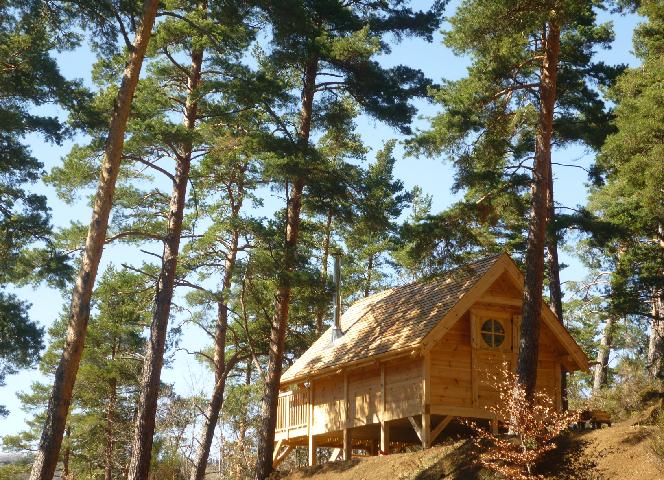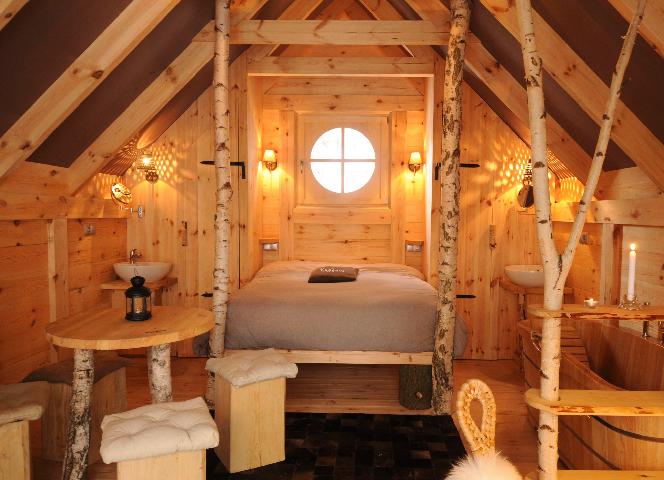
- Home
- New forms of tourism in vogue in recent years
New forms of tourism in vogue in recent years
Many holidaymakers express the need to escape the hustle and bustle that surrounds their daily lives, and advocate the original and elementary, even rudimentary vacations.
Parallel to this, others seek thrills and surprises via atypical, tailor-made or premium stays.
In the need for constant innovation, travel companies and operators are adapting to consumers' new wishes and expectations, offering innovative and exuberant services, or which, a contrario, smell vintage and back to basics. Whatever the case, vacations are a real opportunity for many French people, so everything is done to guarantee unforgettable services for increasingly demanding customers.
Back to simple
An ecological awareness
Uses are changing, and current events are showing us that; more and more nomads, concerned about preserving the planet, are showing their distrust of means of transport with a high ecological footprint, such as air travel, and entering the Swedish "flygskam" phenomenon.
Future eco-tax on air tickets, mistrust of long car journeys or other "polluting" means of transport ... ecological awareness and the desire to combat global warming are therefore gaining ground.
While airlines are experiencing (sometimes fatal) declines in patronage on their kerosene-burning long-haul flights, the trend is upwards for the simple, the near.
"Local", "slow tourism", ethical, healthy ... are proliferating and constantly attracting new generations.

Green vacations in demand
A need for authenticity is therefore being felt socially, with a trend towards disconnection, harmony with nature coupled with a return to basics. Many holidaymakers are looking for simple, eco-responsible, no-frills holidays.
Sleeping in a charming cabin in the heart of the Auvergne forest while enjoying a home-cooked meal, rich in greens (a stuffed cabbage?) is, typically, today a very popular activity. The winning ticket for many will be to couple this with an antioxidant hike in the pure air of the Sancy massif, to digest.
With a view to meeting the new demands of holidaymakers, establishments with the European ecolabel offer a number of guarantees to consumers. Issued by AFNOR, the label assesses a number of key criteria: water and energy conservation and management, reduced use of chemicals, waste limitation and recovery, etc.
Even going so far as to reduce the use of vehicles on their grounds, or to install collective sorting areas, campsites are taking real steps to respect the local natural environment through concrete actions.

New stimuli
At the same time, in a completely different, less crude register, experiences "at the other end of the world", which are now more accessible (thanks in particular to low prices on the internet), give the greatest number of people access to original stays, some of the most atypical and thrilling, breaking -sometimes-, with home woofing.
Resort spots boosted by the apocalypse
It's not uncommon to see formerly shunned destinations become veritable places to be today. Transformed into recreational industries, these anonymous -or sadly notorious- drop-off points are experiencing exponential growth; the complexity of getting there, the danger, the secrecy surrounding them ... fascinate.
Following the example of Chernobyl, certain remnants of disasters (humanitarian, natural, miscellaneous events ...) have become windfalls for "dark tourism".
These new attractions give rise to mixed feelings, between an understanding of legitimate intrinsic historical interest, or a feeling of trivialization and light-heartedness of dramas, turned into leisure activities.
At the same time, there is a growing awareness of the importance of the "dark tourism" phenomenon.
A constantly evolving market
The unusual can also be found in brand-new, even more singular experiments. Tourist-free environments, for example, are increasingly sought-after.
According to "Tourism Highlights 2018", the World Travel & Tourism Council's "Countries report 2018" and a summary infographic offered by Globe-Trotting, Antarctica ranks among the top destinations with few visitors, with 0.003 holidaymakers / km². The Marshall Islands of Micronesia, meanwhile, recorded just 6,000 arrivals in 2018, or 0.5 tourists / km²; figures that should, as a result, only increase in the coming years ...
It would be tedious to list all the new forms of vacation today, given how rapidly the sector is evolving.
The Google query "atypical tourism" counts at the very least ten million results, and the information is pouring in; On a more minority scale, counter-tourism - which consists in doing the opposite of what a traveler is "supposed" to do -, K2 - which proposes going to a city only to explore in depth the "K-2" box on its map -, "recomposed past" - inviting people to discover cities using only obsolete means of transport -, are nonetheless gaining followers all over the world....
Tourism trends are undeniably changing. The ease of access to a wealth of information gives the greatest number of holidaymakers access to a range of holidays to suit all tastes. Anything is possible to get off the beaten track. Faced with these new trends, there are great opportunities for tourism operators offering all-inclusive or more unusual vacations, or for new platforms enabling you to very quickly find services to satisfy every desire, all over the world.
Watch out, then, for those who don't take the turn.
